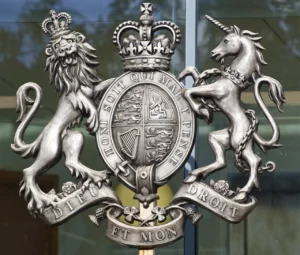In a significant policy shift, the German government has announced that Ukraine can now use German-supplied weapons to conduct strikes inside Russian territory. This decision aligns Germany with recent moves by the United States and other NATO allies to loosen restrictions on Ukraine’s military operations.
The announcement was made by government spokesperson Steffen Hebestreit, who emphasised that the permission comes with specific conditions aimed at protecting Ukrainian sovereignty and ensuring compliance with international law. “We are jointly convinced that Ukraine has the right, guaranteed under international law, to defend itself against these attacks,” Hebestreit stated. “To do so, it can also use the weapons supplied for this purpose in accordance with its international legal obligations; including those supplied by us.”
The new policy stipulates that Ukrainian forces can use German military supplies to strike targets across the border, but this is restricted to defensive operations aimed at thwarting attacks on Kharkiv from the north. The strategic city of Kharkiv has faced persistent shelling and assaults from Russian forces, making its defence a critical priority for Kyiv.
Germany’s decision reflects a broader shift among Western allies in their approach to the conflict, moving from a stance of cautious support to more robust assistance that includes enabling Ukraine to take offensive measures. The U.S. and several NATO members have recently eased their own restrictions, acknowledging the necessity for Ukraine to strike at the source of attacks.
This policy change marks a notable departure from Berlin’s previous hesitations regarding the provision of heavy weaponry and offensive capabilities to Ukraine. It signals a strengthened commitment to support Ukraine in its struggle against the ongoing Russian invasion, now in its second year.
The implications of this decision are profound, potentially altering the dynamics of the conflict. It provides Ukraine with greater tactical flexibility and the ability to disrupt Russian military operations that have been launched from within its own borders.
As the international community watches closely, this development underscores the deepening resolve among NATO countries to support Ukraine’s right to self-defence and territorial integrity. The move is likely to provoke a strong reaction from Moscow, which has consistently warned against Western nations supplying advanced weaponry to Ukraine.
In the face of escalating tensions, the German government remains steadfast in its support for Ukraine, framing the decision as a necessary step in upholding international law and deterring aggression. The focus now shifts to how this policy will be implemented on the ground and its impact on the broader conflict.


































